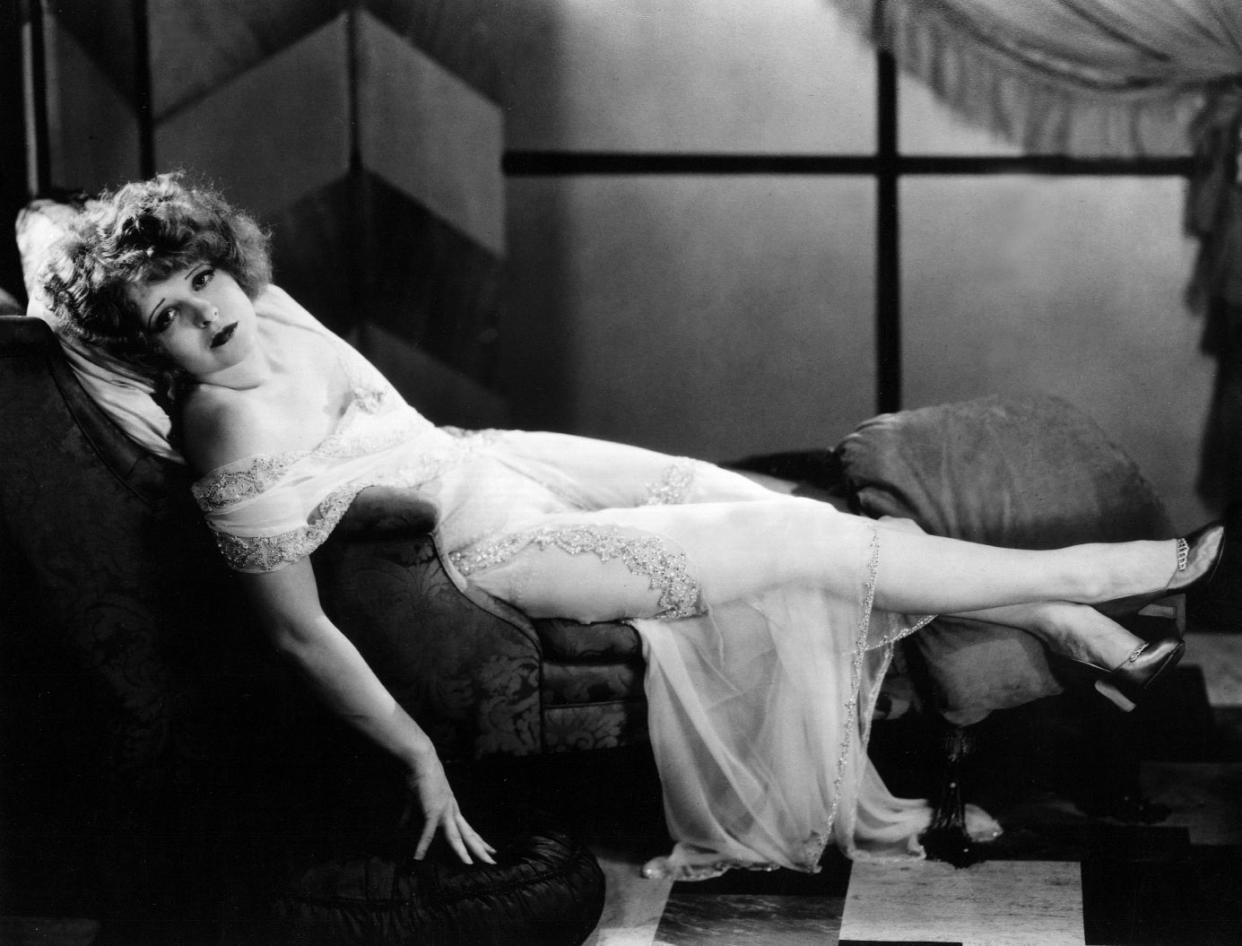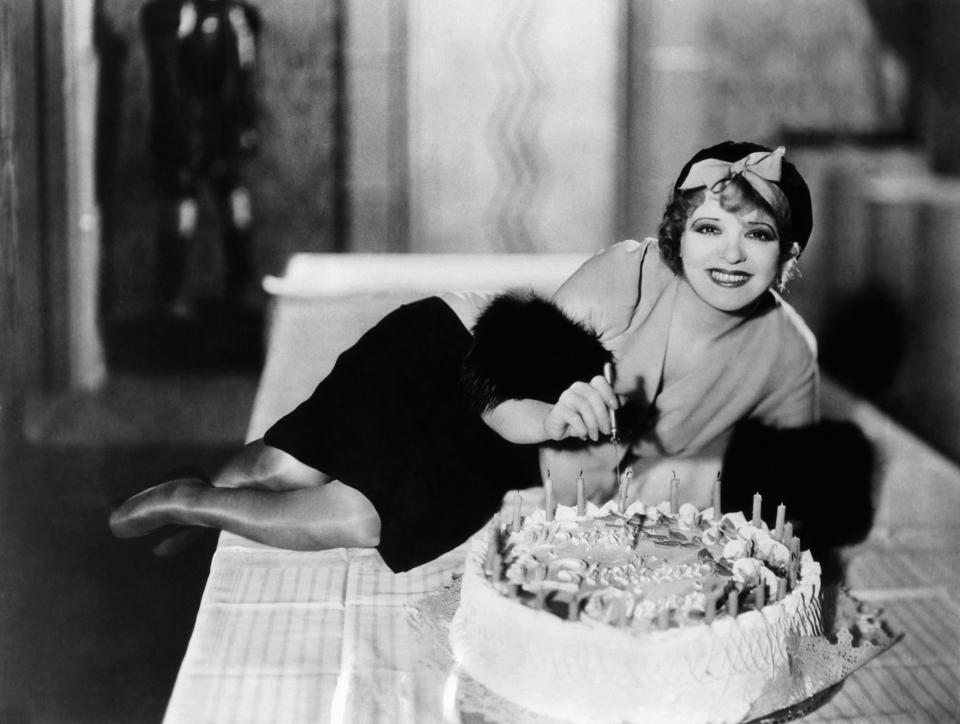Taylor Swift Brought Clara Bow Back Into the Conversation. Film Forum Is Showing Why She Matters

- Oops!Something went wrong.Please try again later.
- Oops!Something went wrong.Please try again later.
Taylor Swift may or may not be aligned with the interests of the U.S. government (she’s definitely not), but she does wield immense cultural power. Every time the 14-time Grammy winner includes an obscure lyrical reference in her songs, it creates an opportunity for the nerds who recognize it to say something like, oh, “But do you know what’s really cool about Clara Bow?”
So … do you know what’s really cool about Clara Bow?
More from IndieWire
After the Success of 'Barbie,' Warner Bros. Is Staying in the Margot Robbie Business
'American Fiction' Plays the Long Game on VOD and Plays It Well
Until this week, Clara Bow was just another silent movie star whose career got reduced to a persona in popular culture (the hedonistic “It Girl” both in the movie “It” and in her real life). But now that her name is revealed as inspiring a track on Swfit’s upcoming album “The Tortured Poets Department,” expect Bow to become a sensation all over again, 100 years after her heyday.
New Yorkers have the chance to get ahead of the curve with Film Forum’s SAPPH-O-RAMA series, which includes screenings of Bow’s first talkie, 1929’s “The Wild Party,” on Friday, February 9 and Tuesday, February 13. (Those unable to attend either screening can find Bow’s classics “It” and the Oscar-winning Best Picture “Wings” streaming on Tubi and a few more films on YouTube.)
There’s a fair bit of mythology around “The Wild Party” — legend has it Bow blew out the microphones with her untrained voice when it came time to film — including writer/director Damien Chazelle using the fraught production for a memorable sequence in “Babylon” as Margot Robbie’s Nellie films her first sound film. Bow inspired much of Nellie, including her hardscrabble background (Bow biographer David Stenn calls the star’s early circumstances “the most brutal poverty known at the time,”) a decidedly declasse accent, traumatic relationships with her family, a fruitful collaboration with a female director, and a perilous fall from the top as times and tastes change.
The real Bow and her collaboration with director Dorothy Arzner stretched across both silent and sound films. But it’s in 1929’s “The Wild Party” in which Arzner was able to imbue the film with a bit of queer joy, especially into the relationships between its women, like Bow’s Stella Ames and Shirley O’Hara’s Helen. 1929 is also important for Hayes Code reasons; since it came before Hollywood’s self-censoring regime, and “The Wild Party” displays a twinned cleverness and horniness that doesn’t tend to get associated with “old movies.”
Those assumptions about early films couldn’t be less reflective of reality — seriously, consider this the sign you’ve been waiting for to check out any Pre-Code Hollywood film today. With “The Wild Party,” Paramount was enthused for Bow’s first sound feature to revolve around hedonistic college parties and crushing on sexy young professors. The studio only gave its star, who had no theater training and first came to the attention of filmmakers through a magazine contest, two weeks to prepare to make a film with entirely different tools and limitations.

“Babylon” (and “Singin’ in the Rain” before it) mines drama out of the advent of sound wrecking careers. But while the transition did make and break stars, “The Wild Party” didn’t cause Bow to vanish overnight and proves she can be expressive and playful with dialogue as she was in her silent work. She remained the top box office attraction in 1929 and the No. 2 in 1930. A year later, she asked to be released from her final Paramount film. Her career was effectively over (two more sound films came in 1932). Bow was 25.
As for why Swift has singled out Clara Bow for her new album? We’ll have to wait until its April 14 release to know for sure, but our money is on the constant attacks on Bow from both the industry and the media.
As Bow herself once said, “They yell at me to be dignified. But what are the dignified people like? The people who are held up as examples for me? They are snobs. Frightful snobs.” Then again, Bow was also frequently singled out for her romantic life, another connection between her and 2023’s Time Person of the Year.
But though it presents dubious opportunities for translating possible Swiftian Easter eggs, “The Wild Party” does present a wonderful opportunity to see an example of queer themes sneaking into big Hollywood studio films almost 100 years ago and to experience Bow’s magnetizing appeal, Brooklyn accent and all.
Best of IndieWire
Where to Watch This Week's New Movies, Including 'Argylle' and 'How to Have Sex'
Christopher Nolan's Favorite Movies: 40 Films the Director Wants You to See
Sign up for Indiewire's Newsletter. For the latest news, follow us on Facebook, Twitter, and Instagram.

